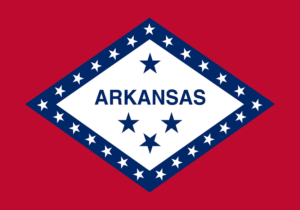The failure to act described in this subdivision may not be excused on the ground that the discovery sought is objectionable unless the party failing to act has applied for a protective order as provided in Rule 26(c).
Ark. R. Civ. P. 37
Reporter’s Notes to Rule 37:
1. With the exception of minor wording changes and the omission of Section (e) of FRCP 37, this rule [is] identical in substance to the Federal Rule. Prior Arkansas law was found in Ark. Stat. Ann. § 28-359 (Repl. 1962) which tracked the Federal Rule prior to its 1970 amendments.
2. As under prior Arkansas law, the imposition of sanctions for failure to make discovery rests in the discretion of the trial court. Diaz v. Southern Drilling Co., 427 F. 2d 1118 (C.C.A. 5t h, 1970); Marshall v. Ford Motor Company, 446 F. 2d 712 (C.C.A. 10t h, 1971). Overall, this rule should not effect any significant changes in Arkansas practice.
Addition to Reporter’s Notes, 1997 Amendment: The major change in this rule appears in paragraph (2) of subdivision (a) and corresponds to an amendment to Rule 26(c). Under paragraph (2), a party moving to compel discovery must state in the motion, subject to Rule II, that it has attempted to resolve the dispute informally before seeking judicial intervention. Another change corresponds to an amendment to Rule 35(c) establishing a 30-day deadline for responding to a request for authorization to obtain medical records. As amended, paragraph (2) provides for a motion to compel if the authorization is not provided in a timely manner. In addition, the last sentence of paragraph (2) has been moved to paragraph (4).
Under revised paragraph (3) of subdivision (a), evasive or incomplete disclosures and responses to interrogatories and production requests are treated as failures to disclose or respond. Interrogatories and requests for inspection should not be read or interpreted in an artificially restrictive or hypertechnical manner to avoid disclosure of information fairly covered by the discovery request, and to do so is subject to appropriate sanctions.
Paragraph (4) of subdivision (a) has been divided into three subparagraphs for ease of reference, and in each the phrase “after opportunity for hearing” has been changed to “after affording an opportunity to be heard” to make clear that the court can consider such questions on written submissions as well as on oral hearings. Subparagraph (A) has been revised to cover the situation in which information that should have been produced without a motion to compel is produced after the motion is filed but before a hearing. It also provides that a party should not be awarded expenses for filing a motion that could have been avoided by conferring with opposing counsel. Subparagraph (C) has been amended to include the provision formerly contained in subdivision (a)(2) with respect to protective orders and to include the same requirement of an opportunity to be heard that is specified in subparagraphs (A) and (B).
Under revised subdivision (d), a party seeking discovery via interrogatory or inspection request must make an effort to obtain responses before filing a motion for sanctions. Similar requirements to attempt resolution of discovery disputes without court action appear in revised Rules 26(c) and 37(a)(2).
Addition to Reporter’s Notes, 2003 Amendment: In subdivision (b)(2), the word “person” in the first clause has been replaced with “party,” thus making the provision consistent with the corresponding federal rule.
Addition to Reporter’s Notes, 2006 Amendment: The Rule has been amended by adding a new subdivision (e) and renumbering former subdivision (e) as (f). New subdivision (e) draws on the principles embodied in the 2000 amendment to Federal Rule of Civil Procedure 37, but establishes a different rule. Under this new Arkansas Rule, when a party fails to supplement discovery responses seasonably with new information, and prejudice results, then the prejudiced party may move the circuit court for relief. New subdivision (e) gives the circuit court wide discretion, including imposing any sanction allowed by Arkansas Rule of Civil Procedure 37, in handling any failure to supplement. This new provision works in tandem with the companion change in Arkansas Rule of Civil Procedure 26(e) to strengthen every party’s duty to supplement discovery responses promptly.

